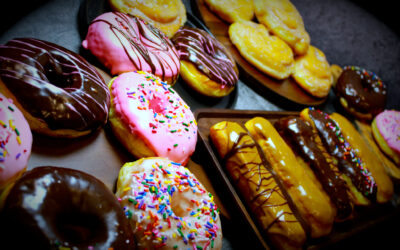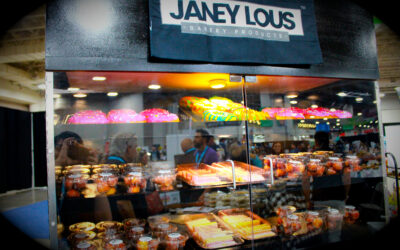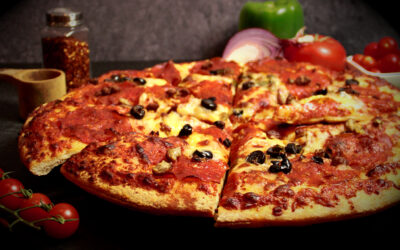While mixing up a batch of your favorite cookies, cakes, or bread rolls, you probably think you are simply making your recipe sweeter when you grab the sugar off the pantry shelf. However, sugar is much more valuable and complicated than that. Sugar comes in many different forms and is used to enhance the taste, texture, color, and preservation of your favorite baked goods. Through chemical reactions during the baking process, sugar plays a vital role in many final product characteristics.
What is Sugar?
The sugars we use for food are made up of a molecule called sucrose. Sucrose can be found in every plant variety, but plants such as sugar cane and sugar beets have a high sucrose concentration. It is from these plants that we get most of our baking sugar.
Why is Sugar Important in Baking?
Texture
Sugar plays a role in tenderizing doughs and batters. As sugar molecules bind to water, they compete with the proteins that form gluten so that these proteins are not fully hydrated, which keeps gluten development at a minimum. This is why cakes, cookies, and muffins come out tender and not rubbery.
Sugar is also partly responsible for crispness. Sugar recrystallizes as water leaves during baking, producing a crispier texture.
Color
Almost every recipe calls for you to bake until “golden brown.” That golden brown color comes from sugar. When sugar heats to about its melting point, it liquefies and caramelizes, darkening to an amber color. This gives your breads, cakes, and cookies that enticing brown finish.
Taste
While it is obvious that sugar makes baked goods sweeter, caramelization when batters and doughs are heated and baked also contributes to the taste. The caramelization of sugar adds depth and richness to flavors and tempting aromas.
Preservation
When food is frozen, sugar protects the texture of the baked goods, frozen bread dough, cookie dough, or batter by dampening the freezing point of the water. This prevents food from freezing too hard, which could cause ice crystals to damage the food.
Sugar also plays a role in preventing microbial growth and can extend the shelf life of baked products. By binding to water, sugar prevents moisture loss and keeps food from going stale too quickly.
What Types of Sugars are Used in Baking?
Granulated Sugar
Granulated sugar is highly refined but very versatile. It is a white sugar and is the most commonly used, perfect for almost any baking need. Made from sugar beets or sugar cane, the size of the slightly coarse granulated crystals makes it ideal for traditional batters and doughs.
Superfine Sugar
Superfine sugar is also called castor sugar. It is made by grinding granulated sugar down to tiny, fine crystals. Superfine sugar is not quite as fine as powdered sugar and is ideal for light-textured cakes. Professional bakers rely on this sugar as it quickly dissolves into batters and doughs. Superfine sugar makes excellent cakes, meringues, and frostings.
Powdered Sugar
Powdered sugar may also be called confectioners sugar. It is a super-ground granulated sugar made into a light powder. Powdered sugar is combined with a small amount of cornstarch to prevent it from clumping. This sugar dissolves very quickly. Powdered sugar works well in frosting, icing, or as a sweet dusting over cakes and cookies.
Brown Sugar
Brown sugar consists of sugar crystals with molasses which gives it a signature brown color. Different types of brown sugar contain different amounts of molasses. You can commonly find light or dark brown sugar options. Adding molasses gives it a caramelized flavor, adding depth to various baked goods. Brown sugar also contains more moisture, producing a chewier texture.
Molasses
Molasses on its own is a dark, thick syrup. Molasses comes as a by-product of refining sugar cane. With a robust caramel taste, it is available in light, dark, and blackstrap options. Molasses is used in cookies and cakes with strong, vibrant flavors, such as gingerbread.
Honey
Honey is a natural sugar made by honeybees. Honey can vary in taste and color depending on the flowers used to produce it, the time of year, and the location. Honey doesn’t spoil and can absorb moisture in the air, creating moist cakes, breads, and cookies when used for baking. Honey can increase browning and should be baked at lower temperatures to prevent too much.
Coconut Sugar
Coconut sugar comes from coconut tree sap. It is generally considered a healthy sweetener. Coconut sugar contains inulin which will slow down sugar absorption into your blood. It is a great sugar substitute in cakes, pastries, cookies, and more. Coconut sugar has a slightly nutty flavor that will show up in your baked goods.
Maple Syrup
Maple syrup comes from the sap of sugar maple trees. Pure maple syrup is simply sap that is boiled down. Maple syrup is another healthy sweetener alternative containing calcium, sodium, and potassium. Pure maple syrup has a lot of moisture and, unlike honey, will spoil if not stored properly.
The type of sugar chosen by a home baker, cafe, or frozen bakery supplier, depends on the type of baked goods produced. As sugar affects not only the taste of cakes, cookies, and breads but the texture, color, and shelf life, all of these aspects should be considered. Granulated sugar may be the go-to, but perhaps your favorite treats would turn out even better with brown sugar or maple syrup!



